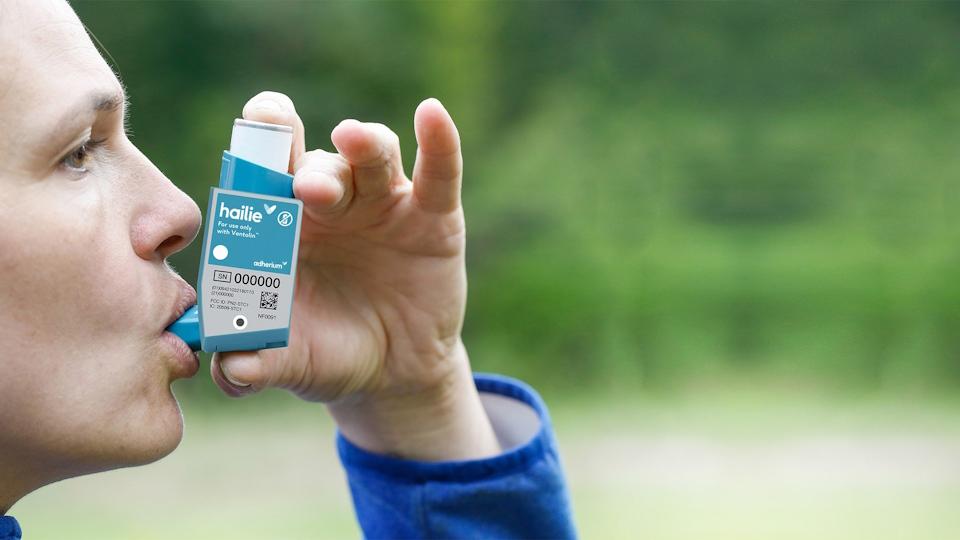EMA approves AZ’s COVID-19 vaccine – including for over-65s

The EMA has approved AstraZeneca’s COVID-19 vaccine for use in the EU in all adults aged over 18, despite assertions in Germany this week that it shouldn’t be used in elderly people.
The conditional marketing authorisation makes AZD1222 the third coronavirus vaccine to be approved for EU use after the Pfizer/BioNTech and Moderna shots, and according to EMA executive director Emer Cooke has “further expanded the arsenal of vaccines available to EU and EEA member states to combat the pandemic and protect their citizens.”
At a press conference today representatives from the EMA sidestepped any comment on the ongoing dispute between AZ and the EU on the timing and scale of deliveries of AZD1222 – which went up a gear after the Commission published a redacted copy of its contract with the drugmaker – sticking firmly to the scientific data under review.
As the approval was announced, the EU confirmed it is introducing export controls on coronavirus vaccines made in its member states, saying “the protection and safety of our citizens is a priority and the challenges we now face left us with no choice but to act.”
Bruno Sepodes, vice-chair of EMA’s human medicines committee (CHMP), said the regulator based its decision on two of the four clinical trials submitted as part of the dossier for AZD1222, excluding two which had very few COVID-19 cases, and concluded that the overall efficacy of the vaccine was around 60%.
That’s in line with the conclusions of the MHRA, which approved the vaccine at the end of last year.
Sepodes also presented a similar assessment to the UK regulator on the over-65s issue, concluding that whole there isn’t much information in people aged over 55 from the studies, “at least some protection is expected in this subgroup.”
Only 13% of patients in its review were elderly, but as the vaccine was able to stimulate neutralising antibodies in this age group, and based on the experience with other vaccines, “there is no reason to expect there would not be some level of efficacy,” he added.
That is at odds with the view of Germany's vaccine commission, the Paul Ehrlich Institute, which said this week that AZD1222 shouldn’t be used in people aged over 65, citing a lack of data.
Sepodes did say however that given the low number of older patients in the studies “other options…could be preferred in certain situations.”
“We’re probably getting too caught up in the numbers,” he told journalists on the call. “As a public health tool, 59.5% efficacy is relevant, especially when you have to deal with the…lack of other options.”
If the EU had not approved AZ’s vaccine it would have been a surprise, given the well-documented problems the bloc has had getting supplies of all three vaccines and criticism of the slow rollout of immunisation programmes in member states.
Janssen shot 66% effective
Meanwhile, there was further good news on the vaccine front today as the pivotal data emerged for Johnson & Johnson’s single-dose JNJ-78436725, indicating a 66% protection rate overall.
The vaccine developed by J&J’s Janssen Pharma unit is an adenoviral candidate like AZD1222, so it is interesting that the overall efficacy has come in at around the same level – albeit lower than was seen with the mRNA-based shots from Pfizer/BioNTech and Moderna.
Janssen said JNJ-78436725 was also effective at limiting the impact of COVID-19, preventing 85% of severe infections and 100% of hospitalisations and deaths. The company says it plans to file for emergency-use authorisation with the FDA next week.
One less encouraging finding however was that the vaccine didn't seem to be as effective against the South African variant of SARS-CoV-2 causing concern around the world as it is more transmissible and may also be associated with higher mortality.
It still had 57% efficacy however, and the fact that it requires just one dose - so supplies can be stretched further - and requires regular refrigeration only is a big plus, especially for potential use in developing countries.












